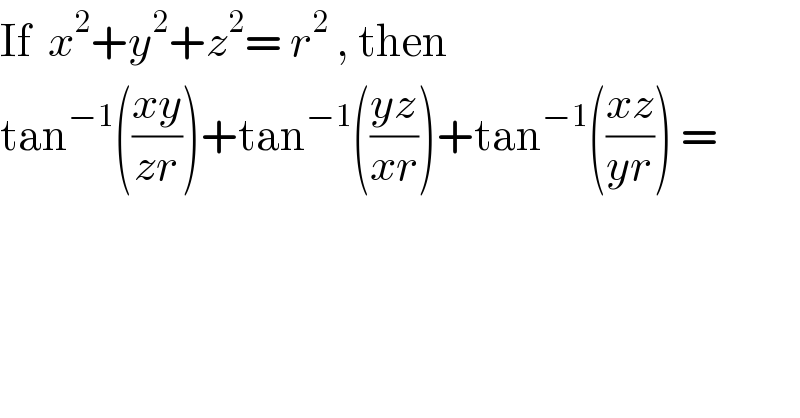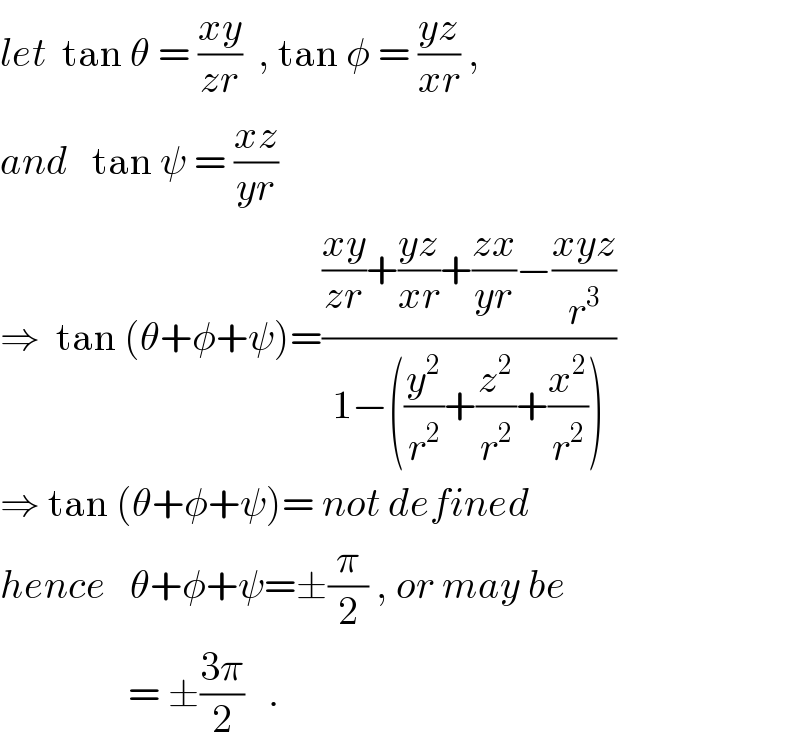
Question and Answers Forum
Question Number 30939 by paddu1234 last updated on 01/Mar/18

Answered by ajfour last updated on 01/Mar/18

| ||
Question and Answers Forum | ||
Question Number 30939 by paddu1234 last updated on 01/Mar/18 | ||
 | ||
Answered by ajfour last updated on 01/Mar/18 | ||
 | ||
| ||